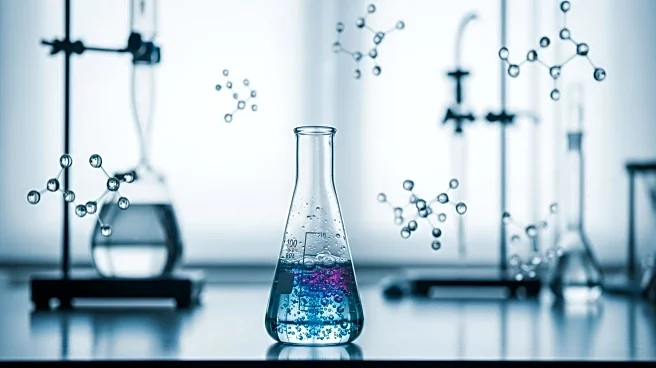What's Happening?
The Royal Swedish Academy of Sciences is set to announce the Nobel Prize in Chemistry today. Historically, 116 chemistry prizes have been awarded to 195 individuals since 1901. Last year's prize was given to David Baker, Demis Hassabis, and John Jumper for their work on protein design using artificial intelligence. This year's Nobel announcements began with the Medicine Prize awarded to Mary E. Brunkow, Fred Ramsdell, and Shimon Sakaguchi for their work on immune tolerance. The Physics Prize followed, recognizing advancements in quantum tunneling. The Nobel announcements will continue with the Literature Prize on Thursday, the Peace Prize on Friday, and the Economics Prize next Monday.
Why It's Important?
The Nobel Prize in Chemistry is a prestigious recognition that highlights significant contributions to the field, often leading to advancements in technology, medicine, and industry. The award brings global attention to the recipients' work, potentially influencing future research directions and funding. The use of artificial intelligence in last year's winning research underscores the growing intersection of technology and traditional scientific disciplines, which could lead to innovative solutions to complex problems. The anticipation surrounding the announcement reflects the importance of chemistry in addressing global challenges, such as drug development and sustainable materials.
What's Next?
Following the announcement, the recipients will be celebrated in a ceremony on December 10, coinciding with the anniversary of Alfred Nobel's death. The recognition may lead to increased interest and investment in the winning research areas, fostering further innovation. The announcement will also set the stage for discussions on the future of chemistry and its role in solving pressing global issues. As the Nobel season continues, attention will shift to the upcoming announcements in literature, peace, and economics, each contributing to a broader understanding of human achievement.










